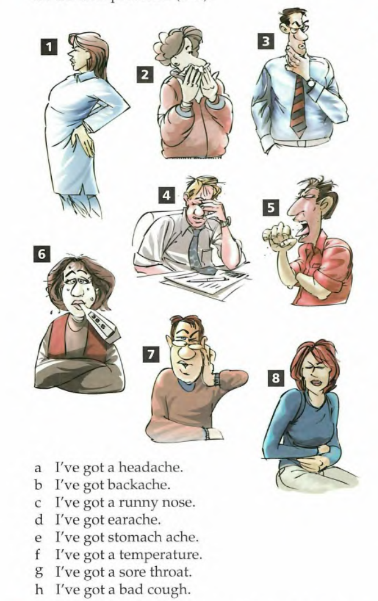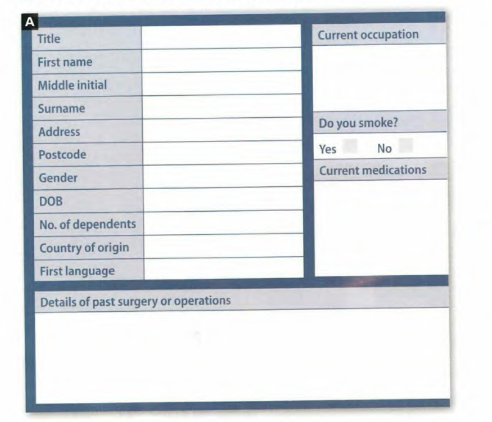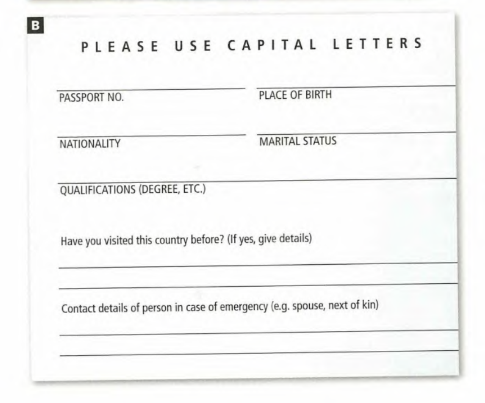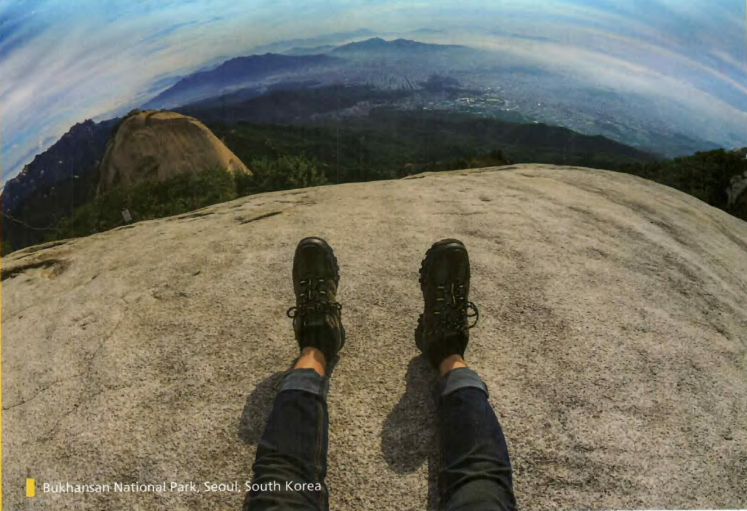
Unit 1 full
Thời gian làm bài: 1 giờ
Hãy bắt đầu chinh phục nào!
Xem trước nội dung:
Look at the pictures. Match the people (1-8) with the medical problems (a-h).

Cột 1
Cột 2
Listen to two conversations, one at a pharmacy and one at a doctor's. Write the number of the
conversation (1-2) next to the medical advice.
Take this medicine twice a day.
1
2
Go to bed.
1
2
Drink hot water with honey and lemon.
1
2
Take one pill twice a day.
1
2
Buy cough sweets.
1
2
Match the beginnings of the sentences (1-9) with the endings (a-i). Use the expressions for talking about illness to help you.
Cột 1
Cột 2
Read the article The Secrets of a Long Life. Answer the questions.
The Secrets of a Long Life
The island of Okinawa in Japan has some of the oldest people in the world. It's famous for its high number of centenarians – men and women who live beyond one hundred years of age. Some of the reasons for their good health are that they:
go fishing and eat what they catch.
do a lot of gardening and grow their own fruit and vegetables.
go cycling and never drive when they can walk.
often spend time with friends. They meet at people’s houses and play games.
rarely buy food from a supermarket.
do regular exercise, go swimming and lead active lives.
Where is Okinawa Island?
In Korea
In Japan
In China
In Thailand
Why is Okinawa famous?
It has some of the oldest people in the world.
What kind of food do the people eat?
mainly fast food.
fish, fruit, vegetables
only supermarket food
processed food
Listen to a radio interview with photographer David McLain.
Tick the topics the speakers talk about.
the age of men and women
family life
sleep
food
exercise
Listen again. Are the sentences true (T) or false (F)?
David McLain is travelling to different countries.
He's talking to the radio presenter in the studio.
In Sardinia, men don't live the same number of years as women.
Sardinian families often eat together.
David says life in Sardinia is less stressful than in other places.
Younger people are eating more unhealthy food and they aren't doing much exercise.
Complete the sentences with the present simple or present continuous form of these verbs.
check ; not/ do ; not/ eat ; go ; learn ; play ; read ; spend ;
- We a new language at the moment.
- My friends and I often time at each other's houses.
- Can you wait a moment? I my emails.
- How often you to the gym?
- I a really interesting book at the moment.
- Currently, a friend of mine any sweets and he says he feels healthier.
- I'm nearly eighty, but I any exercise!
- More old people computer games these days. It isn’t just the young people.
Write pairs of questions. Use the present simple in one question, and the present continuous in the other.
a) How / usually spend your free time?
How do you usually spend your free time?b) / you / do / much sport these days?
Are you doing much sport these days?a) / often / read novels?
b) / read / any good books at the moment?
a) Where / normally go on holiday?
b) Where / plan to go this year?
a) / speak / any other languages?
b) / learn / any new languages?
Read the article.
Nature is good for you
How do you feel about nature? After spending hours indoors, do you often feel like going outside for a walk? Or if you work for hours at your office desk, do you feel better when you take a break and visit your local park? Most people think that nature is good for us; it’s good for our bodies and good for our brains. However, humans are spending more time inside and less time outside. For example, the number of visitors to Canada’s national parks is getting lower every year. And in countries such as the USA, only 10% of teenagers spend time outside every day. Many doctors feel that this is a problem in the twenty-first century, and that it is making our physical health worse.
As a result, some doctors are studying the connection between nature and health: one example of this is the work of Dr. Matilda van den Bosch in Sweden. The doctor gave people a maths test. During the test, their heart rate was faster. After the test, one group of people sat in a 3D-virtual-reality room for fifteen minutes with pictures and sounds of nature. Their heart rates were slower than people’s in the other group.
The virtual contact with nature helped them feel more relaxed. Another good example of how nature is good for health comes from Canada. In Toronto, researchers studied 31,000 people living in cities. Overall, they found that healthier people lived near parks.
Because of studies like these, some countries and cities want nature to be part of people’s everyday life. In Dubai, for example, there are plans for a new shopping mall with a large garden so shoppers can relax outside with trees, plants and water. In some countries such as Switzerland, ‘forest schools’ are popular; schoolchildren study their subjects in the forests and do lots of exercise outside. And South Korea is another good example: it has new forests near its cities and around 13 million people visit these forests every year. So after building cities for so long, perhaps it’s now time to start rebuilding nature.
What do most people think about nature?
Nature is good for us.
What is the main change in how people spend their time?
Humans are spending more time inside and less time outside.
Humans are spending more time exercising outdoors.
Humans are spending more time visiting parks.
Humans are spending more time studying outside.
What is happening at national parks in Canada?
After the maths test, where did some people look at nature?
In Toronto, where did healthier people live?
What are they going to build in Dubai?
a new shopping mall with a large garden
Where can children study in Switzerland?
In South Korea, how many people visit the new forests every year?
Around 13 million people.
Complete the questions with these words: better, like, that
- What do you usually feel doing after a day at work?
- Do you feel nature is good for us? Why? Why not?
- After a difficult day, what makes you feel in the evening?
Where is Bukhansan National Park?
In the countryside of South Korea
In Seoul, South Korea
Outside of Seoul, in the suburbs
In the southern part of South Korea
How many people visit it every year?
About 5 million
About 10 million
About 15 million
About 20 million
Why do they go there?
To visit the countryside
It’s a good way to relax.
To enjoy water activities
To see wildlife
Match the two parts of the expressions for everyday routines. Then describe your typical day using some of the expressions.
Cột 1
Cột 2
Complete the article about sleep with the present simple form of the verbs.
Why (we/sleep)?
From birth, we (spend) a third of our lives asleep, but scientists still (not know) exactly why.
Why (we have) problems sleeping?
In modern society, many adults (not/ get) the seven or eight hours sleep they need every night. We (work) long hours and we rarely (go) to bed at sunset.
Why (we / sleep) differently?
It (depend) on the time of year and also our age. Teenagers usually (need) more sleep than adults. Lots of elderl people (not/sleep) longer than four or five hours at night, but they often (take) naps during the day.
Listen to the endings of these verbs. Is the sound /s/, /z/ or /1z/?
feels:
needs:
watches:
sleeps:
goes:
dances:
does:
works:
/1z/
Put the adverb or expression in brackets in the correct place in the sentence. Sometimes there is more than one correct answer.
My brother plays tennis on Saturday mornings. (always)
We eat out at a restaurant. (about once a month)
I take a bus to school. (every day)
She is at home in the middle of the day. (rarely)
They go on holiday. (twice a year)
Are you late for work? (often)
Read the sentences. The words and phrases in bold are used in the video. Match the words to the definitions (a-f).
Cột 1
Cột 2
Watch the video and number a–g in the order you see them.
Cột 1
Cột 2
Complete the notes:
We come to the park very . Every after lunchtime, around p.m.
There are a lot of for Jasmine to play with. There are beautiful everywhere.
I come to the park . On sunny days I come here in my lunch .
I like this part of the park actually. It’s up and there’s this beautiful .
When we were a young family and had , we used to come here, so it has memories.
It’s nicer than the way. It’s a park and we like to see the different .
I go through the park and . I spend time with my friends.
I like in this park.
I come to the park . I come here about a week.
I like to jogging and I like to do here. The park is quiet and there are lots of and trees.
I try and come to the park .
There are always wild and blossom on the trees. It’s lovely to .
Choose the correct options to complete the text about a man called Nazroo.
Every day, Nazroo with elephants. In this photo, taking his favourite elephant, Rajan, for a swim. in the sea around the Andaman Island. Sometimes they to relax this way after a hard day. Rajan worried about being under the water. I suppose good after a long, hot day at work.
Write the sentences with the expression in the correct place. Point out that there is more than one correct answer for three of the sentences.
I play computer and video games. (rarely) =>
We're studying Spanish. (at the moment) =>
My family does sport. (every weekend) =>
- All my friends are working. (these days) =>
Match the verbs in A with the words in B. Then complete the sentences with the expressions.
A: fall take work watch get up
B: long hours asleep a break late TV
I can’t because of all the noise outside my bedroom..
At work, we always at 11 and have a coffee.
We all these days because there is a lot to do.
Sometimes I and I miss my bus to school.
- How much do you in the evenings?
Choose the correct option to complete the conversation between two friends.
A: you feel?
B: Not very . I’ve got a throat.
A: a temperature?
B: I don’t know. I feel a bit hot.
A: drinking some honey and lemon in hot water.
B: Good idea.
A: But you also see your doctor.
Complete the sentences with the present simple form of the verbs in brackets.
- Sam (not live) near me.
- Sofia (drive) to work.
- she (speak) any other languages?
- I (not like) waking up early.
- they (see) each other at the weekends?
- We (be) very tired.
- Some people (not need) a lot of sleep.
- (be) your bus late?
- He (have) a big house in the country.
Look at the sentences below and tick True or False.
I often am tired at work.
We twice a week eat out in a restaurant.
Do you often check your phone for messages?
She is never late to my lesson.
I have two or three times a day a cup of coffee.
They don’t play often board games.
Does usually she take public transport?
Complete the text with words from the boxes. Use a phrase from box A or a verb from box B in each gap. You do not need all the words in the boxes.
A: always every day never often rarely two or three times a month usually
B: eat get up go have leave make meet
I at about 7.30 a.m. and get ready for work. I breakfast because I don’t feel hungry in the mornings. I start work at 9 a.m. and at 12 I have a lunch break. I my friend for lunch – normally two or three times a week. At 1.30 I start work again and finish at 5.30 p.m. I like to keep fit, so I to the gym . I get home at about 8.00 p.m. and make dinner, but I also at restaurants . I’m always tired in the evenings so I go to bed early. And that’s my day!
Complete the sentences with the present continuous form of these verbs.
Verbs: become build go not work talk wait write
I for the bus.
A: Where you ?
B: To the supermarket. We need milk!She this week because she’s on holiday.
A: What are you doing?
B: I an email to my friend.A: Where’s Michael?
B: He to someone on the phone.They a new house on my road.
- More and more people vegetarian.
Complete the pairs of sentences with the verb in brackets. Use the present simple form in one sentence and the present continuous form in the other.
I my lunch very early today.
I normally at 1 p.m. (eat)Tina rarely to work. But today she because of the rain. (drive)
She to her brother on the phone right now. They at this time every day. (talk)
It’s 6 p.m. and I hard in the office.
I normally only until 5 p.m. (work)- I the shopping now. I always the shopping at this time. (do)
Complete the text with the present simple or present continuous form of the verbs.
The Mediterranean diet
People in countries like Italy, Spain, France and Greece (live) longer than people from many other countries. This is probably because of their diet – they (eat) lots of food like vegetables, fruit, nuts, beans, fish and olive oil, and people often (say) that this diet (be) good for your heart. But the traditional Mediterranean diet (change) because more and more people (eat) junk food. So, in the future the Mediterranean diet might be very different.
Look at these forms. Match the questions (1-7) with the headings on the forms in Exercise 2 where you write the information.


- Are you married, single or divorced?
- Do you take any pills or medicine?
- How many children do you have?
- What country were you born in?
- What city/town were you born.
- Who can we call in your family if you need help?
- What is the first letter of your middle name?
Xem thêm đề thi tương tự

22 câu hỏi 1 mã đề 1 giờ
146,895 lượt xem 79,086 lượt làm bài

46 câu hỏi 1 mã đề 1 giờ
146,891 lượt xem 79,086 lượt làm bài

56 câu hỏi 1 mã đề 2 giờ
146,778 lượt xem 79,017 lượt làm bài

Ôn tập hiệu quả với đề thi trắc nghiệm Reading 1 - Unit 1 từ Đại học Dân lập Yersin Đà Lạt. Đề thi tập trung vào các kỹ năng đọc hiểu và phân tích văn bản trong Unit 1, giúp sinh viên cải thiện khả năng đọc hiểu tiếng Anh. Đáp án chi tiết hỗ trợ sinh viên củng cố kiến thức và chuẩn bị tốt nhất cho kỳ thi.
15 câu hỏi 1 mã đề 1 giờ
28,100 lượt xem 15,085 lượt làm bài

Tham khảo đề thi trắc nghiệm HA4 (Unit 1, 2, 3, 4) dành cho sinh viên Đại học Kinh doanh và Công nghệ Hà Nội (HUBT), hoàn toàn miễn phí và kèm theo đáp án chi tiết. Bộ đề thi bao gồm các câu hỏi từ cơ bản đến nâng cao, giúp sinh viên ôn tập và củng cố kiến thức từ các đơn vị bài học. Đây là tài liệu hỗ trợ hiệu quả cho việc chuẩn bị kỳ thi và kiểm tra trong môn học HA4, giúp sinh viên đạt được kết quả cao.
404 câu hỏi 11 mã đề 1 giờ
144,673 lượt xem 77,882 lượt làm bài

Ôn luyện với đề thi trắc nghiệm tiếng Anh cho các Unit 1-2-3-4 từ Đại học Kinh doanh và Công nghệ Hà Nội. Đề thi bao gồm các câu hỏi trọng tâm về ngữ pháp, từ vựng, và kỹ năng đọc hiểu liên quan đến các bài học trong các đơn vị bài học này, kèm đáp án chi tiết giúp sinh viên củng cố kiến thức và chuẩn bị tốt cho kỳ thi. Đây là tài liệu hữu ích cho sinh viên nâng cao trình độ tiếng Anh. Thi thử trực tuyến miễn phí và hiệu quả.
444 câu hỏi 9 mã đề 1 giờ
88,450 lượt xem 47,593 lượt làm bài

20 câu hỏi 1 mã đề 1 giờ
228,829 lượt xem 123,200 lượt làm bài

Tài liệu từ vựng HA3 (Unit 7 - 8 - 9) Phần 1 dành cho sinh viên Đại học Kinh doanh và Công nghệ Hà Nội (HUBT), giúp sinh viên củng cố từ vựng tiếng Anh theo chủ đề, tăng cường kỹ năng ngôn ngữ. Bao gồm các từ vựng quan trọng, ý nghĩa, cách sử dụng và ví dụ minh họa, tài liệu miễn phí giúp sinh viên nắm chắc kiến thức và chuẩn bị tốt nhất cho các kỳ thi tiếng Anh.
22 câu hỏi 1 mã đề 1 giờ
19,430 lượt xem 10,437 lượt làm bài

34 câu hỏi 1 mã đề 1 giờ
191,439 lượt xem 103,070 lượt làm bài

